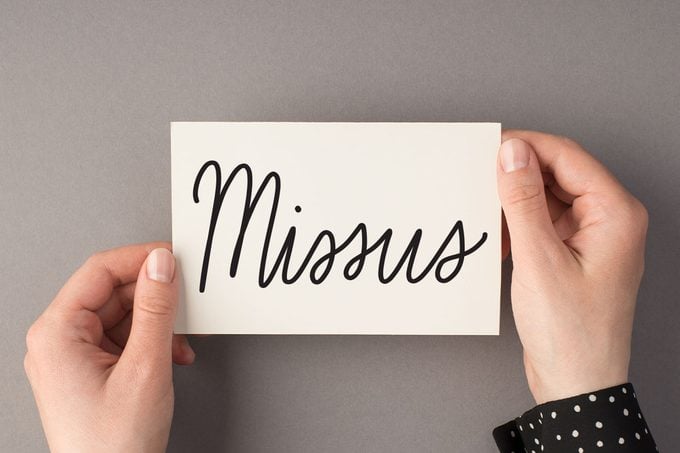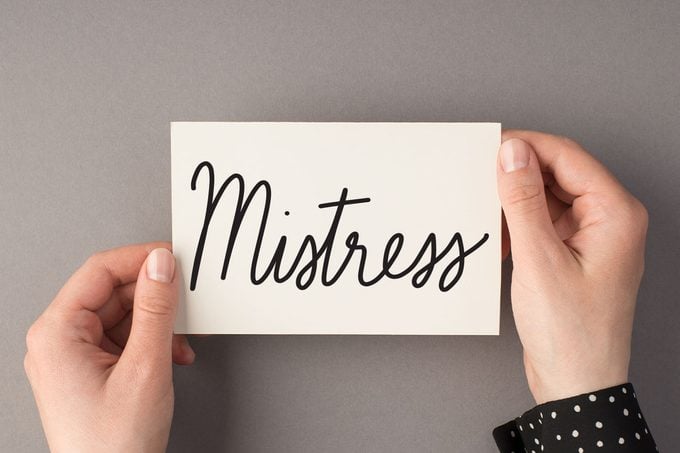Ever Wondered Why There’s an “R” in “Mrs.”?
Updated: Nov. 08, 2021

It's pronounced "missus," so what's with the "R" in Mrs.?
We all know that spellings in English are pretty much random. The ultimate proof of this might be the word “queue,” where only the first letter is pronounced. The English language as we know it today is comprised of a mish-mash of different linguistic influences, but especially Old Norse, Old French, and Latin. On top of that, we have tons of acronym examples that have morphed into everyday words (“radar,” anyone?), a consistent confusion over acronym vs. abbreviation, and a bunch of sounds that bear no resemblance to their written letters. Why do “rough,” “cough,” and “though” not rhyme? What does “Ms.” stand for? Why are we content with this content? And why do we pronounce “Mrs.” like “missus,” which is conspicuously missing an R?

Why is there an “R” in “Mrs.”?
Well, in previous centuries, the word “mistress” was the polite way to address all women. By the 18th century, it had been abbreviated to “Mrs.” Since English speakers have a tendency to shorten spoken words, we soon dropped that “tr” and the word came to be pronounced “missus.” Similarly, men used to be called “master,” which was abbreviated to “Mr.” and soon became “mister.”
RELATED: What Does RSVP Stand For?

Interestingly, like the original meaning of “mistress,” the title “Mrs.” was used to address women regardless of their marital status. It didn’t become a thing exclusively for married women until the late 18th century. That was when title “Miss” came to mean unmarried women, instead of just young girls. And the word “mistress,” of course, has come to mean a different thing entirely.
The thing is, the English language is always changing. Words change meaning and pronunciation, and sometimes we borrow words from other languages and make them our own. Who knows what titles we’ll use for each other in the future? The only thing we can guarantee is that our grammar will continue to befuddle native speakers and English learners alike.
NEXT: The Most Confusing Rules in the Grammar World
Sources:
- Britannica.com: Why is there an “R” in Mrs.?



